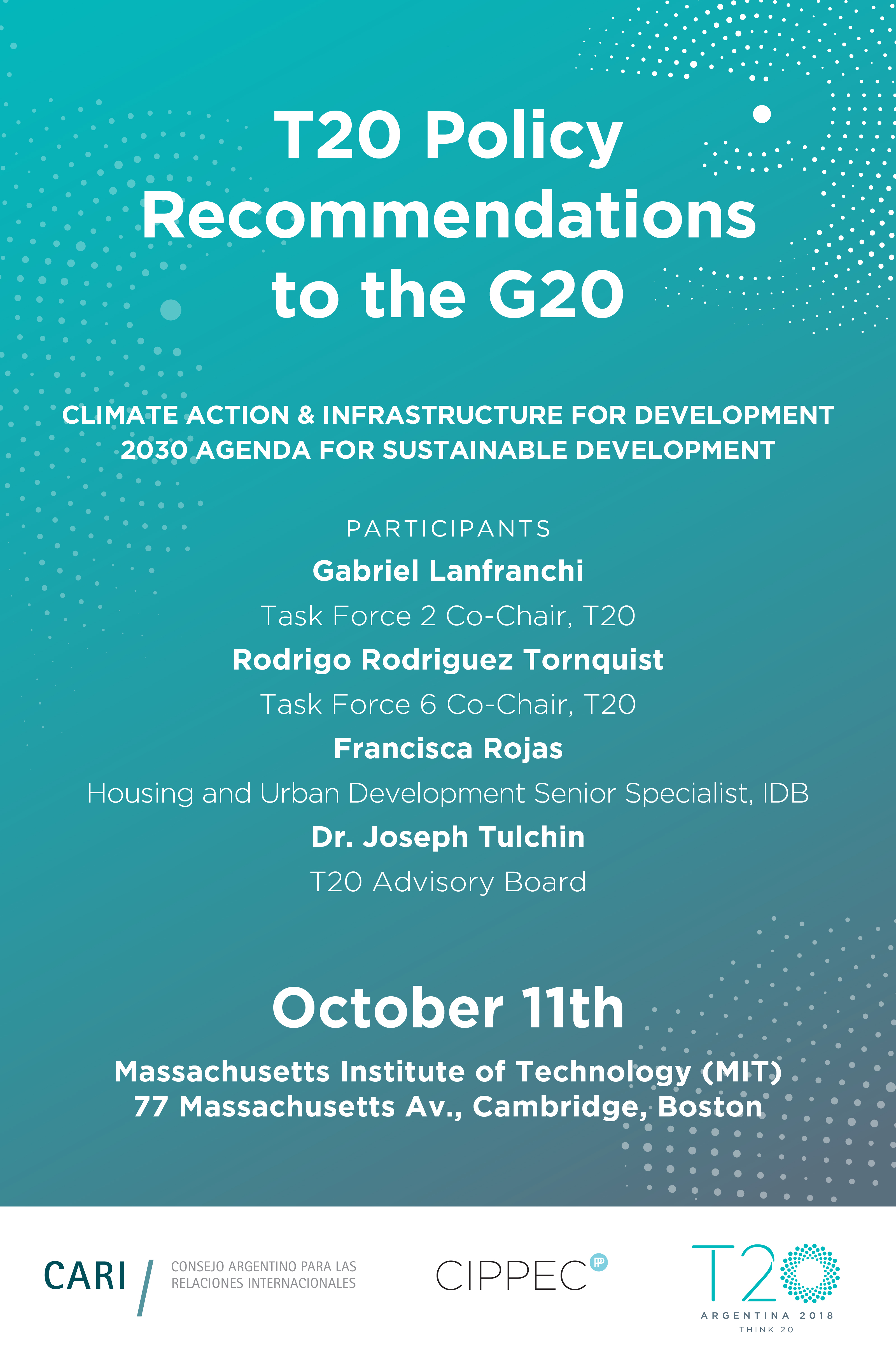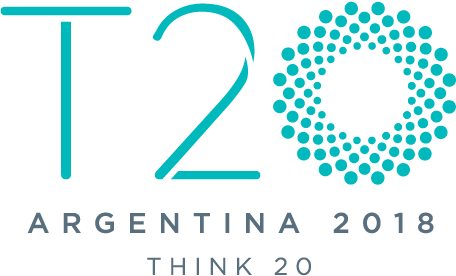T20 ASSOCIATED EVENT
Task Forces involved
Climate Action and Infrastructure for Development (TF2)
2030 Agenda for Sustainable Development (TF6)
Objective
The objective of the dialogue is to present and share with the MIT public (students, graduates and professors) the recommendations proposed to the G20 by the Task Forces on Climate Action and Infrastructure for Development and a 2030 Agenda for Sustainable Development. Similarly, the T20, B20 and C20 Joint Statement on Climate Change and Energy will be presented.
It is expected that there will be a segment to exchange opinions and dialogue in respect of the proposed recommendations, where all those present can participate.
The material that will be presented are the Task Force’s Policy Briefs. There will be special attention on the proposals found in the T20 Communiqué.
Participants
The dialogue will be led by co-chair of TF2 Gabriel Lanfranchi (CIPPEC) and the co-chair of TF6, Rodrigo Rodriguez Tornquist (CARI).
This is aimed at MIT students, graduates and professors, with special emphasis on those who are part of the Environmental Solutions Initiative.

